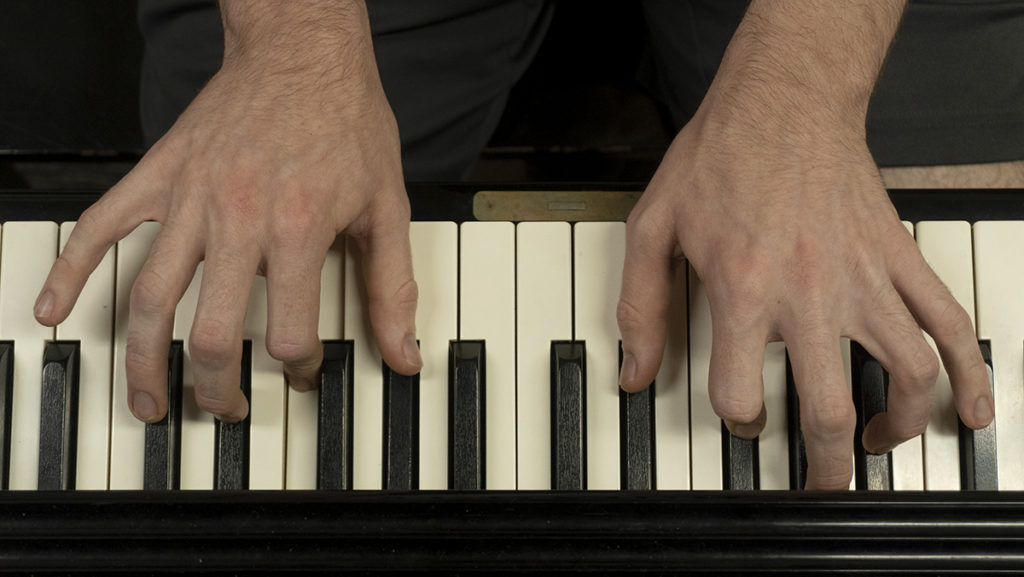A shortage of pianists within the Ithaca College School of Music, Theatre, and Dance is causing some students frustration as they cannot meet their accompaniment needs.
The majority of musical repertoire requires piano accompaniment, making it an essential service, and within certain degree programs, students are required to hold musical recitals. In previous years, graduate students carried much of the accompaniment load; without those pianists, some students are struggling to fulfill their degree requirements or perform repertoire.
Charis Dimaras, professor in the Department of Performance and Collaborative studies, said the recent suspension of the graduate programs as part of the Academic Program Prioritization (APP) is one of the catalysts for the situation.
“The recent suspension of the majority of the music graduate programs is what yielded this difficult situation in [piano] accompaniment resources,” Dimaras said. “Obviously this is a major problem in terms of day to day functionality of the school.”
During the 2020–21 academic year, as part of its strategic plan, the college implemented the Academic Program Prioritization (APP) process. The APP recommended the discontinuation of four out of five masters in music programs.
Frustration with the suspension of the graduate programs is a sentiment shared by many students, including sophomore Advika Balaji, who expressed concern regarding the workload undergraduate pianists now have without the graduate program.
“Upperclassmen used to take a lot more collaborations than we would and they also were a lot less busy,” Balaji said. “But a lot of collaborative [piano] graduates also left so since it was their emphasis, it just reduced the range of vocalists being accompanied.”
Anne Hogan, newly inaugurated dean of the School of Music, Theatre, and Dance, said she plans to have meetings with faculty and students to determine the best course action for the graduate programs.
“There will be a series of meetings to get input from students and faculty, input that will be used to assess and review the graduate programs,” Hogan said. “We will be looking to discuss and review, and how we may want to build on the [graduate] programs that are now suspended.”
Some students have shared frustration with the current system and complained of disorganization. Junior vocal performance major Katherine White said she felt a sense of disorganization in the process of finding a pianist.
“You get sent a list [of pianists] at the beginning of the year, and you have to go down the list and send a blast of emails to them all individually,” White said. “It very much feels like every man for himself. You have to hope [a pianist] responds to you.”
In terms of payment, the majority of pianists within the School of Music, Theatre, and Dance are freelance student pianists who are not employed, and thus not paid by the college. This requires students to negotiate prices and has led to some students complaining about the cost and pianists about being underpaid.
“[Payment] is out of our own pockets. … We’re paying so much money to be here and [the school] can’t even allocate to paying for a degree–required resource,” White said.
Balaji said they had concerns about the off-the-books nature of payments for student accompanists not employed by the college.
“As an international student on a visa, because I’m not technically employed by the college for accompaniment services, I don’t have a [Social Security Number],” Balaji said. “I can’t get a credit card [or] build a credit score because of that.”
Ivy Walz, associate dean of the Center for Music, said that a few years prior a program existed where students were able to be hired by the college as part of their music curriculum, but it was revised to exclude payment and hiring of students due to administrative and payroll issues.
To help address the shortage, Walz updated a webpage of accompaniment resources provided by the college. The updated page now includes a list of staff pianists available to work with students and a form to request a staff pianist for up to three hours of rehearsals per semester.
White said that while they are grateful for the additional resources, they were hoping for more.
“I think it’s good that they’re making resources more accessible,” White said. “But the issue remains that we just need more resources available to accommodate every single music student in the building.”
Hogan said that hearing student concerns is important, and the best way for students to get their concerns addressed is to bring them to the dean’s office.
“I want to ensure multiple ways for students to provide feedback. They could use the [email protected] email and we welcome ideas and suggestions,” Hogan said. “I’m also going to be having as many opportunities as possible to meet with students to go over concerns and suggestions.”









